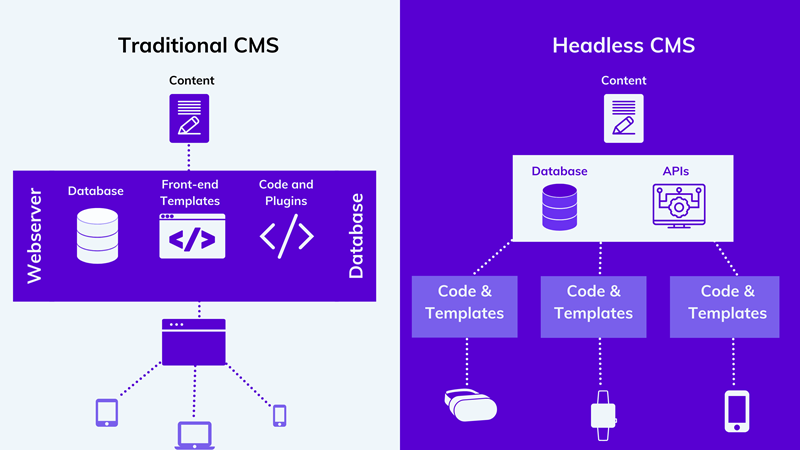Migration Playbook: Monolith CMS to Headless (With Storyblok)

A step-by-step guide: audit content, map models, run dual-run, and cut over—without losing SEO or author velocity.
Moving from a monolith to headless can feel risky. Done right, it’s a controlled modernization that preserves SEO, speeds up publishing, and unlocks a modern frontend.
The 5-phase plan
1) Audit & blueprint
Inventory URLs, templates, metadata, redirects, sitemaps, and images.
Identify content types (e.g., Article, Landing Page, Product Page) and reusable blocks (Hero, Feature Grid, Testimonial).
Define KPIs to protect: Core Web Vitals, rankings, conversion funnels.
2) Content modeling in Storyblok
Create content types that mirror business meaning, not pages.
Break layouts into blocks with clear props: titles, media, CTAs, theme options.
Add SEO fields (title, description, Open Graph, canonical), and global settings (header, footer, nav).
3) Dual-run
Stand up your Next.js site using Storyblok’s APIs.
Sync content from the old CMS into Storyblok (ETL script + manual QA).
Enable preview mode for authors; run the new site in parallel behind a secret host.
4) Cutover without losing SEO
Ship your 301 redirect map.
Preserve canonical tags, hreflang, and structured data.
Swap DNS to the new frontend; monitor logs and 404s in real time.
Use ISR/SSG + edge caching; switch image URLs to the Storyblok Image Service.
5) Stabilize & upskill
Train editors on blocks, workflows, and previews.
Add role-based permissions and content review steps.
Track authoring velocity, publish cadence, and CWV improvements.
Checklist for a clean migration
All legacy URLs mapped or closed with 410/301
OG/Twitter tags validated
Image alt text, captions, and focal points ported
Sitemaps regenerated and submitted
Monitoring alerts for spikes in 404/5xx
Result: a faster site, happier editors, and a stack you can iterate on.
